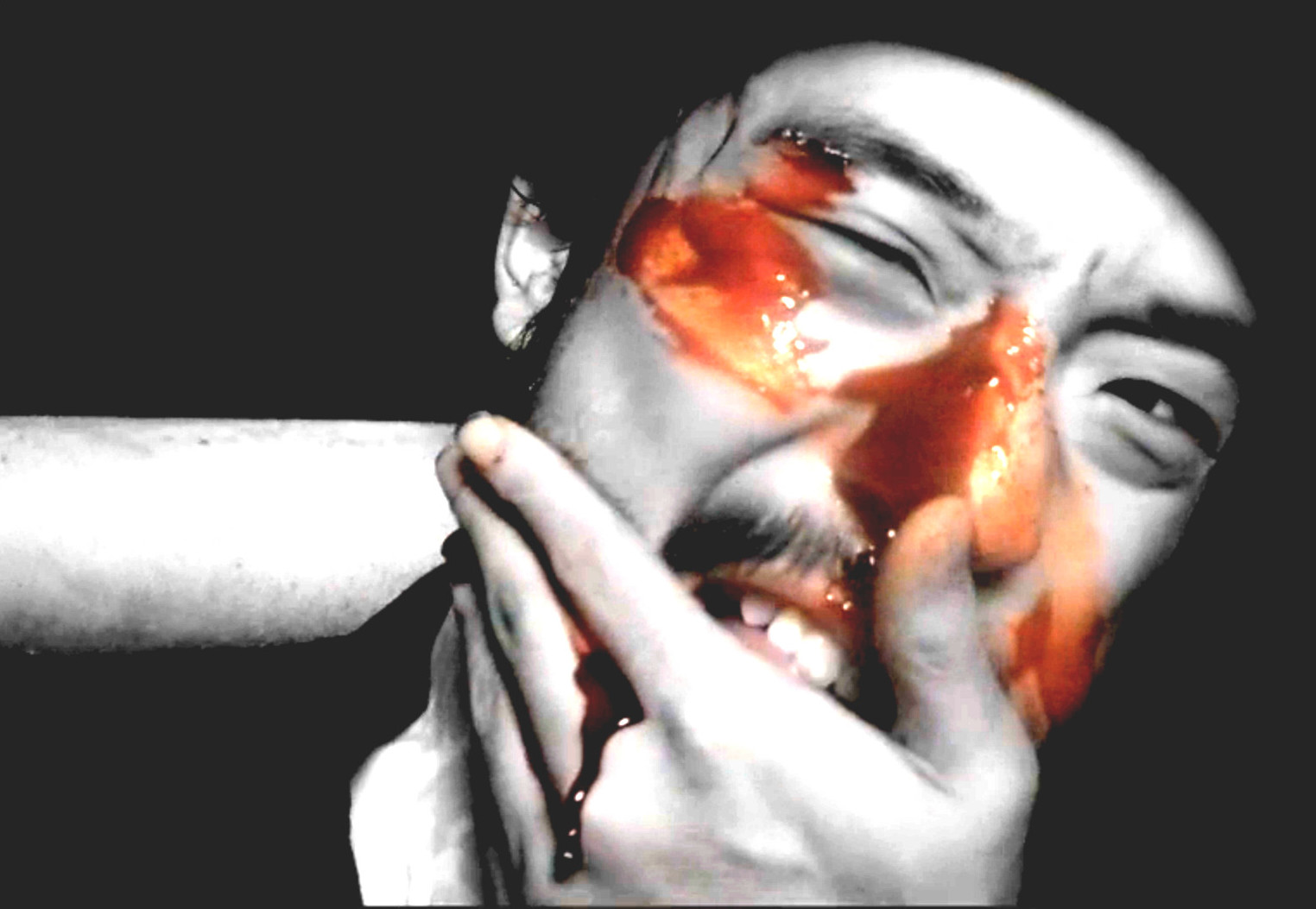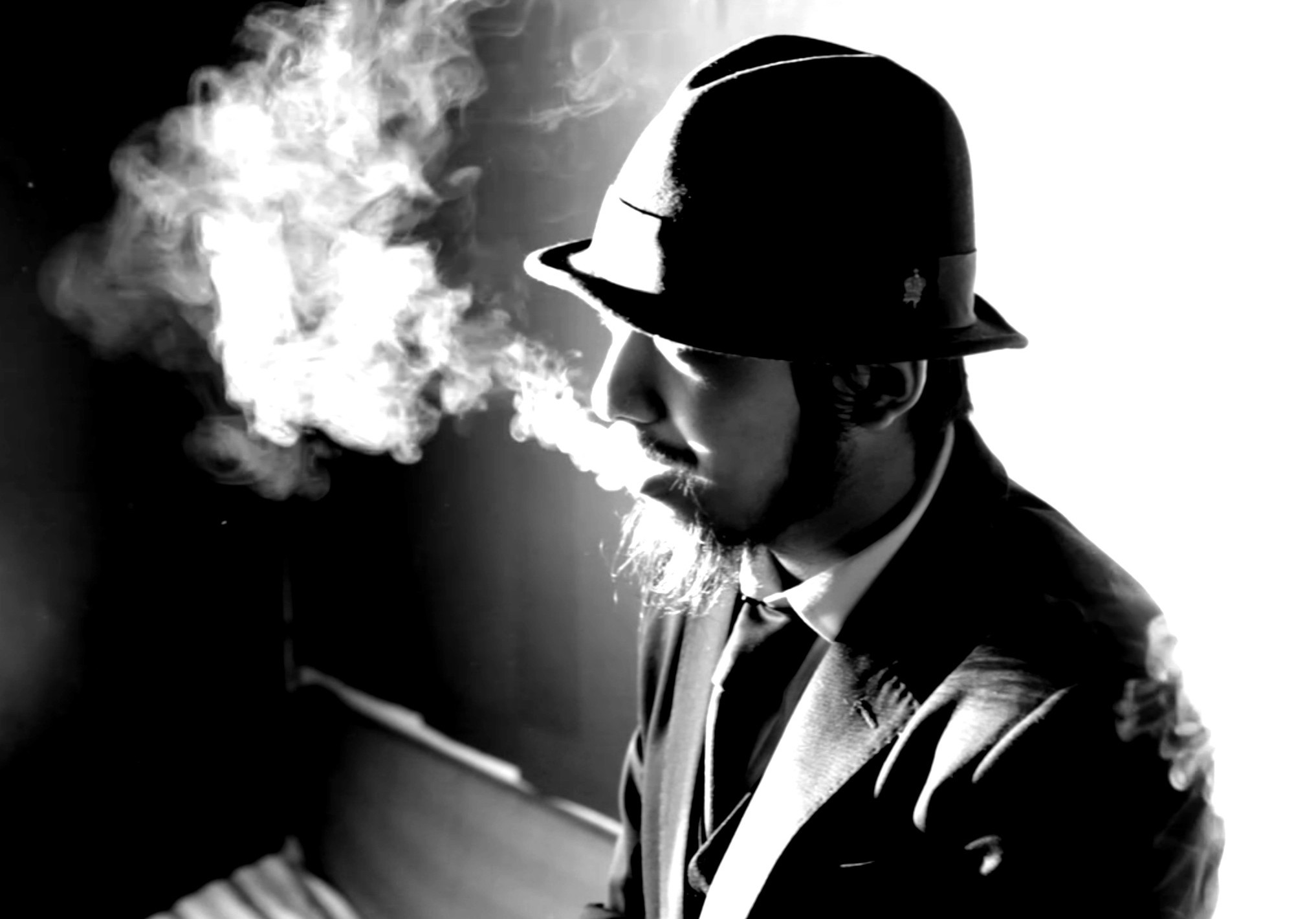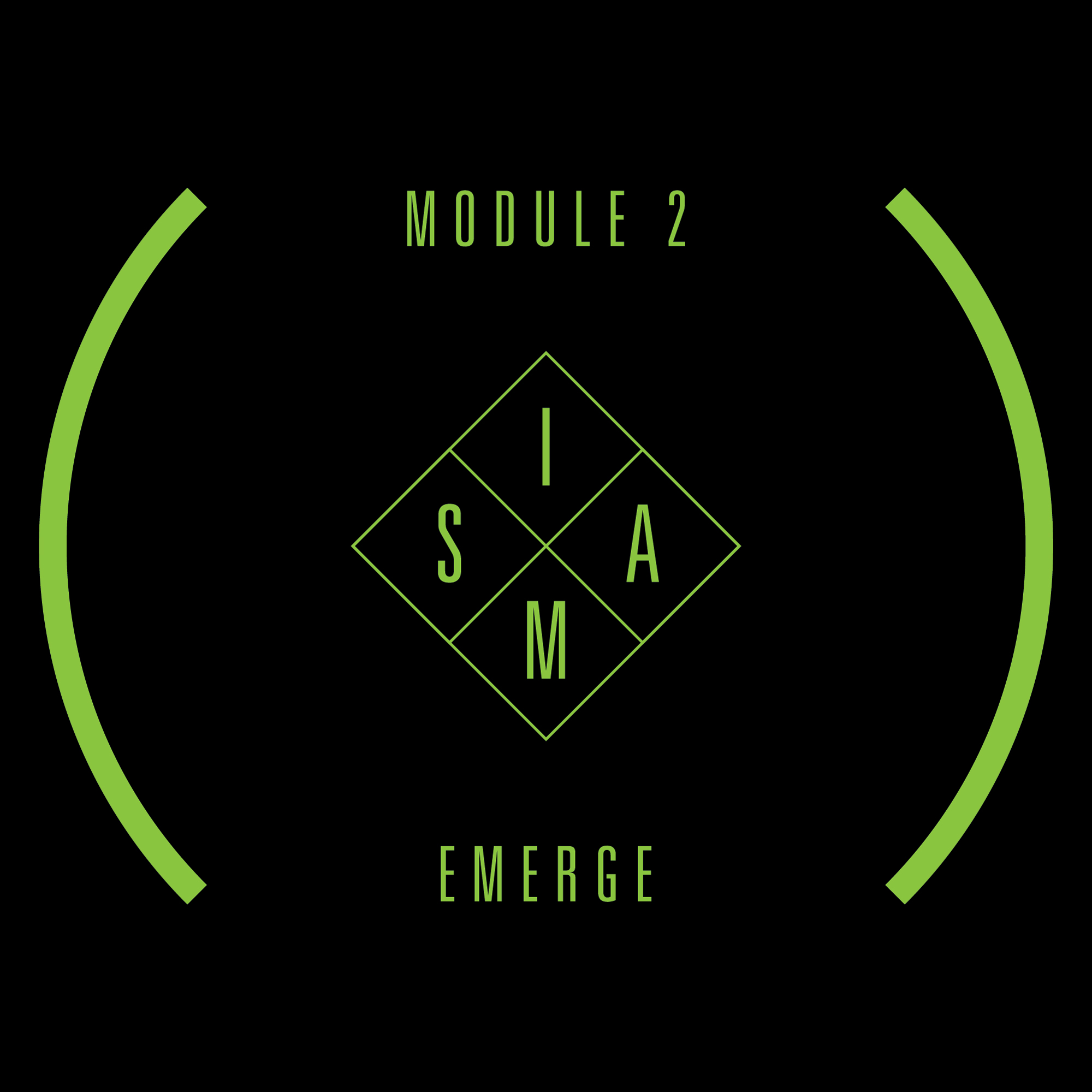采访: Michael Bodenmann Interview
By Josh, 2015年 11月 12日
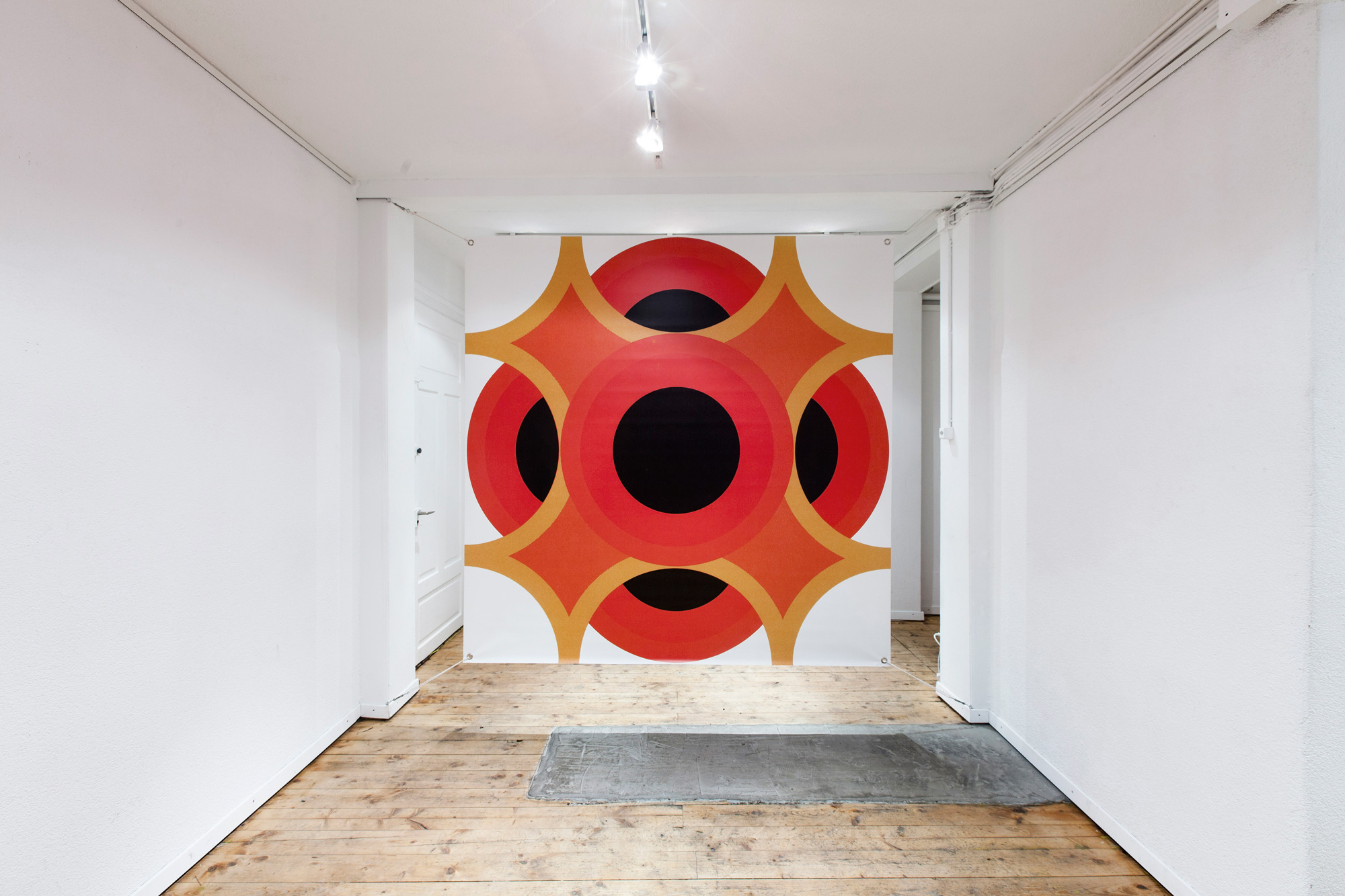
Michael Bodenmann: “On A Good Day You Can See The Sun From Here” (installation view: n&a, St.Gallen, 2012)
As a little follow-up to this week’s event roll call, pangbianr sits down for a quick chat with Swiss artist Michael Bodenmann. Bodenmann will unveil his solo installation “I haven’t been everywhere but it’s ok” this Saturday at Lab 47, a new “nonprofit alternative space and laboratory” comprising the latest in these years’ growing trend of rhizomatic hutong micro-galleries.
Bodenmann, who studied at the Chinese Academy of Art in Hangzhou in 2012, is part of the new wave of international artists making Beijing an inflective site of practice, taking advantage of independent residency programs like those offered by I: Project Space and A307 to repeatedly engage with this city’s evolving, non-commercial artistic core.
Bodenmann’s opening this Saturday includes a live performance by multi-talented Swiss producer and musician Bit-Tuner, who’s also playing a string of pangbianr/Sinotronics shows this week — tonight (Thursday) at Dada, Friday at DDC & Lantern (full schedule here). Here’s Bodenmann on his art and practice within Beijing’s hutong gallery nexus:
***

photo by Ann Christin Mbuti
pangbianr: First off, general introduction: who are you? Where are you from? What are you doing in Beijing at the moment?
Michael Bodenmann: My name is Michael Bodenmann. I am from Zurich, Switzerland. At the moment I’m in Beijing preparing a show for Lab 47 and staying at A307 together with Barbara Signer and Jiajia Zhang for a one-month residency project/exhibition.
pangbianr: You studied for a while at the Chinese Academy of Art in Hangzhou in 2012. From what I know, this school is rather progressive for art schools in China, incorporating sound and multimedia art alongside more traditional forms. What did you study there?
Michael Bodenmann: My professors were Yang Fudong and Qiu Zhijie. Yang Fudong’s video class was quite intense. Everyday we shot a new short film and discussed it with the class. Fortunately, Yang Fudong had an assistant who spoke English. So it was a bit easier for me. For Qiu Zhijie’s Total Art class, we travelled all the way to Xinjiang by bus and train together with more than 50 students. This was a crazy field trip.
pangbianr: How would you compare Hangzhou’s art academy to Zurich University of the Arts, where you received your Bachelor and Master’s degrees?
Michael Bodenmann: It’s different. The academy in Hanghzou has a much more academic approach than the way we study in Zurich. In Zurich we work more studio based. And from time to time we discuss what we are working on.
pangbianr: What attracted you to China in the first place?
Michael Bodenmann: The unknown.

Michael Bodenmann: “Supernatural Apparitions and Domestic Life” (Michael Bodenmann & Barbara Signer Installations view: “Sometimes In The Twilight I See Tiny Things”, NextEx St.Gallen, 2014)
pangbianr: After your study period in 2012, you returned earlier this year for a residency at I: Project Space. How did you get in touch with the space? Did you have a specific desire to return to China, or did this happen more randomly?
Michael Bodenmann: I heard about it trough Barbara Signer, who I sometimes work with. I applied with a specific project that I started in Hangzhou in 2012. That’s why I wanted to go back to China.
pangbianr: Your work seems highly subjective and context-specific… How have your experiences in or memories of Beijing shaped your recent practice?
Michael Bodenmann: The surrounding is always an important factor in my work. Also my stay in Beijing influenced the way of the process between the idea and the realization. It became more spontaneous.
pangbianr: While you’ve been in Beijing you’ve worked closely with another Swiss artist, Jiajia Zhang. How does your current joint exhibit, “Aiming for ideal life”, advance your collaborations from earlier in the year?
Michael Bodenmann: The exhibition at I: Project Space was the first show that we did together. This summer Barbara Signer, Jiajia Zhang and I organized a three-month residency program in Seydisfjordur, Iceland, where we invited more than 20 artists between July and September to spend some time living together. The artist Liang Hao, who runs On Space here in Beijing, was also participating. The project here in A307 can be seen as another chapter. Now we are three people sharing an apartment. Like three single apples.
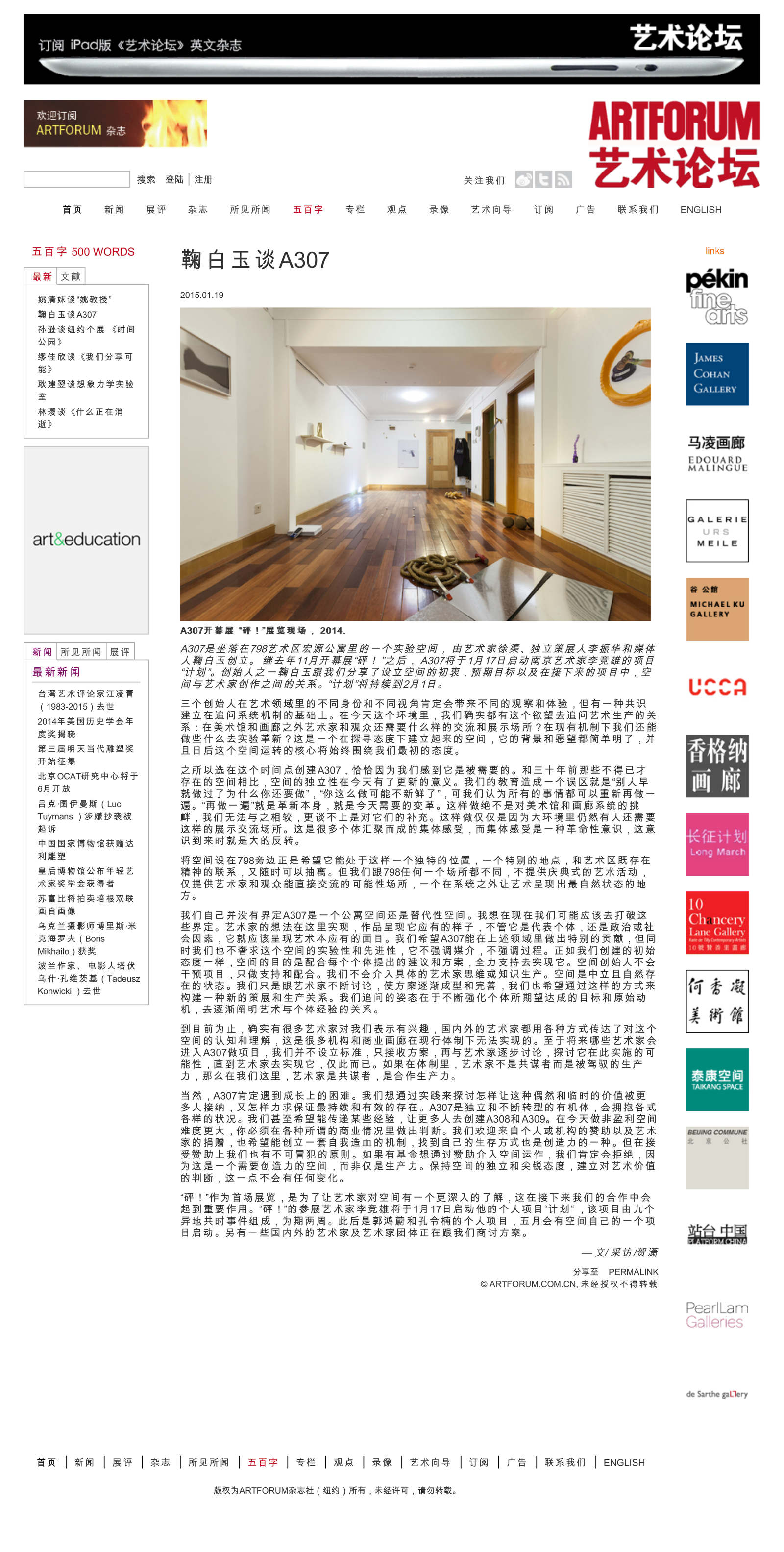
A307 featured on artforum.com.cn
pangbianr: In a conversation you had with I: Project Space founders Antonie Angerer and Anna Eschbach you said about working in China, “Getting lost somewhere and trying to find your point is quite interesting. You have to be careful not to be trapped into this exotic thing.” Can you elaborate on this? I feel that a lot of work made here by visiting artists is more of a gut reaction to the fact of existence in China, or still responding to pre-conceived ideas about this country and society, as opposed to making a sustained effort to engage it without bias. How do you move beyond “exoticism” and integrate your everyday experience of living in China into your work?
Michael Bodenmann: The relationship to the objects or things that I see, collect, and eventually work with is rather personal and direct. It’s not directly influenced by social or political questions. It’s a reaction to an emotional moment that I experience in a certain place. Maybe this is what I try to capture in my works. But of course I’m trying to be aware of the visual language that I use.
pangbianr: This weekend you open a solo exhibit at Lab 47, one of the newest in a growing network of small, alternative micro-galleries within Beijing’s inner-city hutong district. Can you first describe the venue? What is the space like, and how did you conceive your piece accordingly?
Michael Bodenmann: Lab 47 is a really small space, more like a corridor with a window door. It’s next to a public school. So a lot of people can look inside, even when it is closed. I like this idea of an open space. My installation will be visible all the time without going into the space. That’s why I thought of doing something special for the opening. I decided to collaborate with Bit-Tuner again. It’s a sequel of a work that we did for the group show “Take in Nature” in Shanghai this summer. The sound adds to the atmosphere of the installation, which is crucial for the perception of the work.
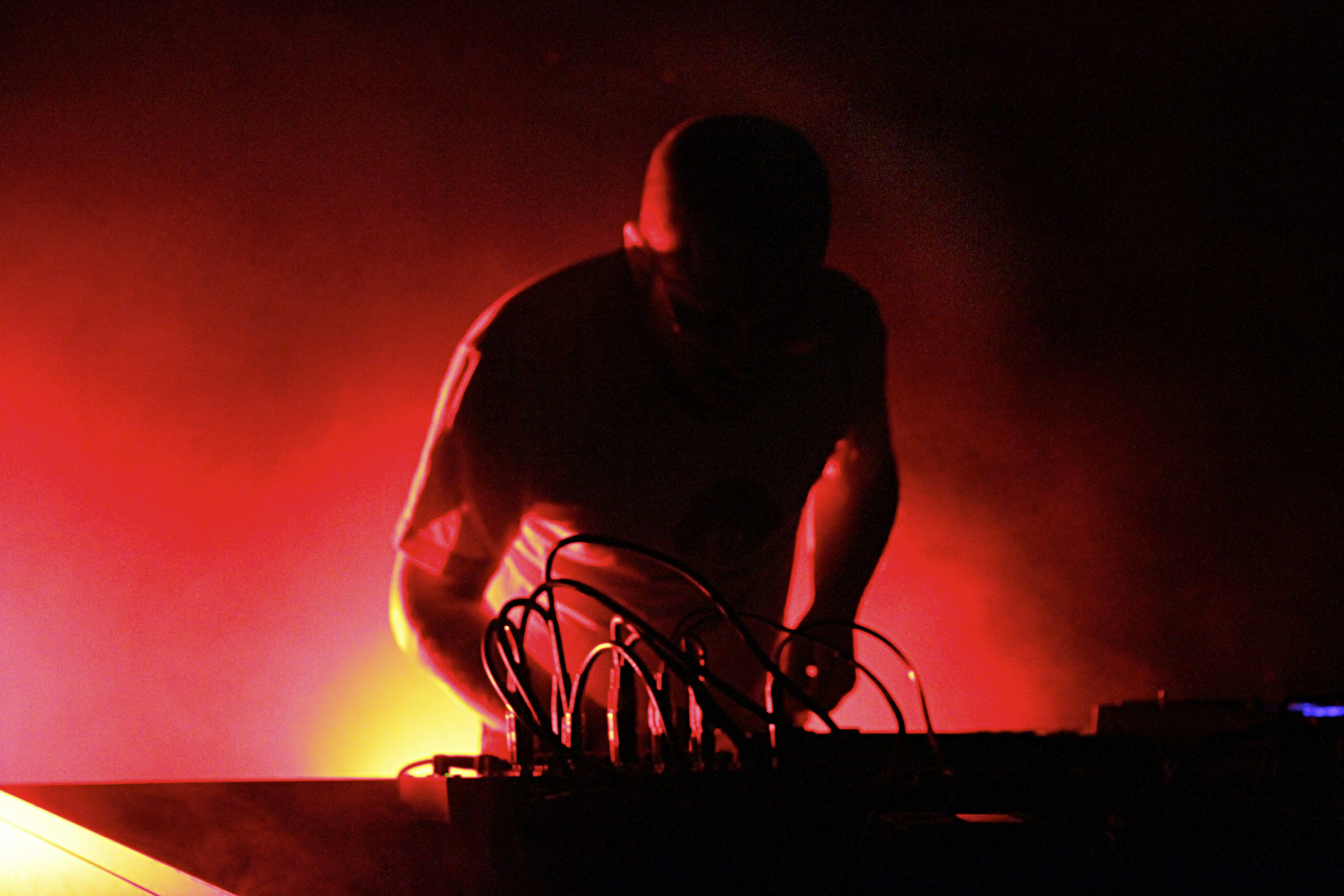
Bit-Tuner — catch him this week at Dada, DDC, Lantern, and Lab 47 (photo by Hans Gut)
pangbianr: What are your plans for after this exhibit? Is China an important site for your work at this point, and do you plan to return for future projects?
Michael Bodenmann: The next thing is our exhibition at A307, which will open on November 20th. And I’ll do a small work for the Chao Bai River Project, which is organized by On Space. After China, we are thinking of building a studio in Seydisfjordur, Iceland to work there.
***
Catch the opening of Michael Bodenmann’s solo show on Saturday, November 14 from 4pm, featuring a live performance by Bit-Tuner. Full info can be found at lab-47.com. Keep track of A307’s wechat for updates on “Aiming for Ideal Life”, Bodenmann’s group show with Barbara Signer and Jiajia Zhang, based on their current residency.




